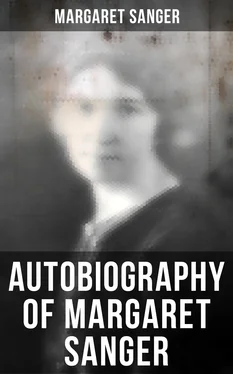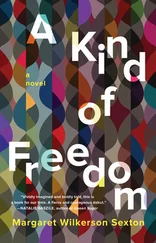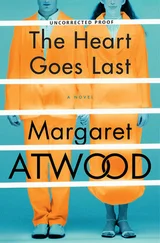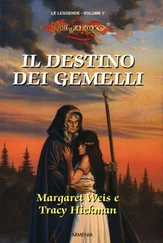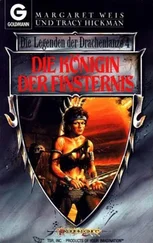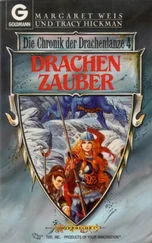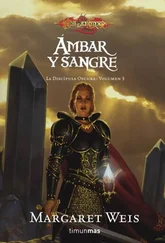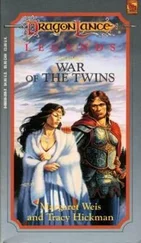Margaret Sanger
Autobiography of Margaret Sanger
Account of the Fight for a Birth Control

Books
OK Publishing, 2020
musaicumbooks@okpublishing.infoTous droits réservés.
EAN 4064066395766
Chapter One FROM WHICH I SPRING
Chapter Two BLIND GERM OF DAYS TO BE
Chapter Three BOOKS ARE THE COMPASSES
Chapter Four DARKNESS THERE AND NOTHING MORE
Chapter Five CORALS TO CUT LIFE UPON
Chapter Six FANATICS OF THEIR PURE IDEALS
Chapter Seven THE TURBID EBB AND FLOW OF MISERY
Chapter Eight I HAVE PROMISES TO KEEP
Chapter Nine THE WOMAN REBEL
Chapter Ten WE SPEAK THE SAME GOOD TONGUE
Chapter Eleven HAVELOCK ELLIS
Chapter Twelve STORK OVER HOLLAND
Chapter Thirteen THE PEASANTS ARE KINGS
Chapter Fourteen O, TO BE IN ENGLAND
Chapter Fifteen HIGH HANGS THE GAUNTLET
Chapter Sixteen HEAR ME FOR MY CAUSE
Chapter Seventeen FAITH I HAVE BEEN A TRUANT IN THE LAW
Chapter Eighteen LEAN HUNGER AND GREEN THIRST
Chapter Nineteen THIS PRISON WHERE I LIVE
Chapter Twenty A STOUT HEART TO A STEEP HILL
Chapter Twenty-one THUS TO REVISIT
Chapter Twenty-two DO YE HEAR THE CHILDREN WEEPING?
Chapter Twenty-three IN TIME WE ONLY CAN BEGIN
Chapter Twenty-four LAWS WERE LIKE COBWEBS
Chapter Twenty-five ALIEN STARS ARISE
Chapter Twenty-six THE EAST IS BLOSSOMING
Chapter Twenty-seven ANCIENTS OF THE EARTH
Chapter Twenty-eight THE WORLD IS MUCH THE SAME EVERYWHERE
Chapter Twenty-nine WHILE THE DOCTORS CONSULT
Chapter Thirty NOW IS THE TIME FOR CONVERSE
Chapter Thirty-one GREAT HEIGHTS ARE HAZARDOUS
Chapter Thirty-two CHANGE IS HOPEFULLY BEGUN
Chapter Thirty-three OLD FATHER ANTIC, THE LAW
Chapter Thirty-four SENATORS, BE NOT AFFRIGHTED
Chapter Thirty-five A PAST WHICH IS GONE FOREVER
Chapter Thirty-six FAITH IS A FINE INVENTION
Chapter Thirty-seven WHO CAN TAKE A DREAM FOR TRUTH?
Chapter Thirty-eight DEPTH BUT NOT TUMULT
Chapter Thirty-nine SLOW GROWS THE SPLENDID PATTERN
Chapter One FROM WHICH I SPRING
Table of Contents
“ ‘Where shall I begin, please your Majesty?’ he asked. ‘Begin at the beginning,’ the King said, very gravely, ‘and go on till you come to the end: then stop.’ ”
LEWIS CARROLL
The streets of Corning, New York, where I was born, climb right up from the Chemung River, which cuts the town in two; the people who live there have floppy knees from going up and down. When I was a little girl the oaks and the pines met the stone walks at the top of the hill, and there in the woods my father built his house, hoping mother’s “congestion of the lungs” would be helped if she could breathe the pure, balsam-laden air.
My mother, Anne Purcell, always had a cough, and when she braced herself against the wall the conversation, which was forever echoing from room to room, had to stop until she recovered. She was slender and straight as an arrow, with head well set on sloping shoulders, black, wavy hair, skin white and spotless, and with wide-apart eyes, gray-green, flecked with amber. Her family had been Irish as far back as she could trace; the strain of the Norman conquerors had run true throughout the generations, and may have accounted for her unfaltering courage.
Mother’s sensitivity to beauty found some of its expression in flowers. We had no money with which to buy them, and she had no time to grow them, but the woods and fields were our garden. I can never remember sitting at a table not brightened with blossoms; from the first spring arbutus to the last goldenrod of autumn we had an abundance.
Although this was the Victorian Age, our home was almost free from Victorianism. Father himself had made our furniture. He had even cut and polished the slab of the big “marble-topped table,” as it was always called. Only in the spare room stood a piece bought at a store—a varnished washstand. The things you made yourself were not considered quite good enough for guests. Sometimes father’s visitors were doctors, teachers, or perhaps the village priest, but mostly they were the artisans of the community—cabinet makers, masons, carpenters who admired his ideas as well as shared his passion for hunting. In between tramping the woods and talking they had helped to frame and roof the house, working after hours to do this.
Father, Michael Hennessy Higgins, born in Ireland, was a nonconformist through and through. All other men had beards or mustaches—not he. His bright red mane, worn much too long according to the family, swept back from his massive brow; he would not clip it short as most fathers did. Actually it suited his finely-modeled head. He was nearly six feet tall and hard-muscled; his keen blue eyes were set off by pinkish, freckled skin. Homily and humor rippled unceasingly from his generous mouth in a brogue which he never lost. The jokes with which he punctuated every story were picked up, retold, and scattered about. When I was little they were beyond me, but I could hear my elders laughing.
The scar on father’s forehead was his badge of war service. When Lincoln had called for volunteers against the rebellious South, he had taken his only possessions, a gold watch inherited from his grandfather and his own father’s legacy of three hundred dollars, and had run away from his home in Canada to enlist. But he had been told he was not old enough, and was obliged to wait impatiently a year and a half until, on his fifteenth birthday, he had joined the Twelfth New York Volunteer Cavalry as a drummer boy.
One of father’s adventures had been the capture of a Confederate captain on a fine mule, the latter being counted the more valuable acquisition to the regiment. We were brought up in the tradition that he had been one of three men selected by Sherman for bravery. That made us very proud of him. Better not start anything with father; he could beat anybody! But he himself had been appalled by the brutalities of war; never thereafter was he interested in fighting, unless perhaps his Irish sportsmanship cropped out when two well-matched dogs were set against each other.
Immediately upon leaving the Army father had studied anatomy, medicine, and phrenology, but these had been merely for perfecting his skill in modeling. He made his living by chiseling angels and saints out of huge blocks of white marble or gray granite for tombstones in cemeteries. He was a philosopher, a rebel, and an artist, none of which was calculated to produce wealth. Our existence was like that of any artist’s family—chickens today and feathers tomorrow.
Christmases were on the poverty line. If any of us needed a new winter overcoat or pair of overshoes, these constituted our presents. I was the youngest of six, but after me others kept coming until we were eleven. Our dolls were babies—living, wriggling bodies to bathe and dress instead of lifeless faces that never cried or slept. A pine beside the door was our Christmas tree. Father liked us to use natural things and we had to rely upon ingenuity rather than the village stores, so we decorated it with white popcorn and red cranberries which we strung ourselves. Our most valuable gift was that of imagination.
We had little time for recreation. School was five miles away and we had to walk back and forth twice a day as well as perform household duties. The boys milked the cow, tended the chickens, and took care of Tom, the old white horse which pulled our sleigh up and down the hill. The girls helped put the younger children to bed, mended clothes, set the table, cleaned the vegetables, and washed the dishes. We accepted all this with no sense of deprivation or aggrievement, being, if anything, proud of sharing responsibility.
Читать дальше
